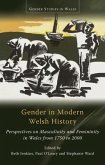OPEN ACCESSTo read the PDF of Welsh Not: Elementary Education and the Anglicisation of Wales for free, follow the link belowWelsh Not: Elementary Education and the Anglicisation of WalesThis book is freely available on a Creative Commons licence thanks to the kind sponsorship of the libraries participating in the Jisc Open Access Community Framework OpenUP initiative. The Welsh Not was a wooden token given to children caught speaking Welsh in nineteenth-century schools. It was often accompanied by corporal punishment, and is widely thought to have been responsible for the decline of the Welsh language. Despite having an iconic status in popular understandings of Wales's history, there has never before been a study of where, when and why the Welsh Not was used. This book is an account of the different ways children were punished for speaking Welsh in nineteenth-century schools and the consequences of this for children, communities and the linguistic future of Wales. It shows how the exclusion of Welsh was not only traumatic for pupils but also hindered them in learning English - the very opposite of what it was meant to achieve. Gradually, Welsh came to be used increasingly in Victorian schools, making them more humane places but also more effective mechanisms in the anglicisation of Wales.
Hinweis: Dieser Artikel kann nur an eine deutsche Lieferadresse ausgeliefert werden.
Hinweis: Dieser Artikel kann nur an eine deutsche Lieferadresse ausgeliefert werden.








